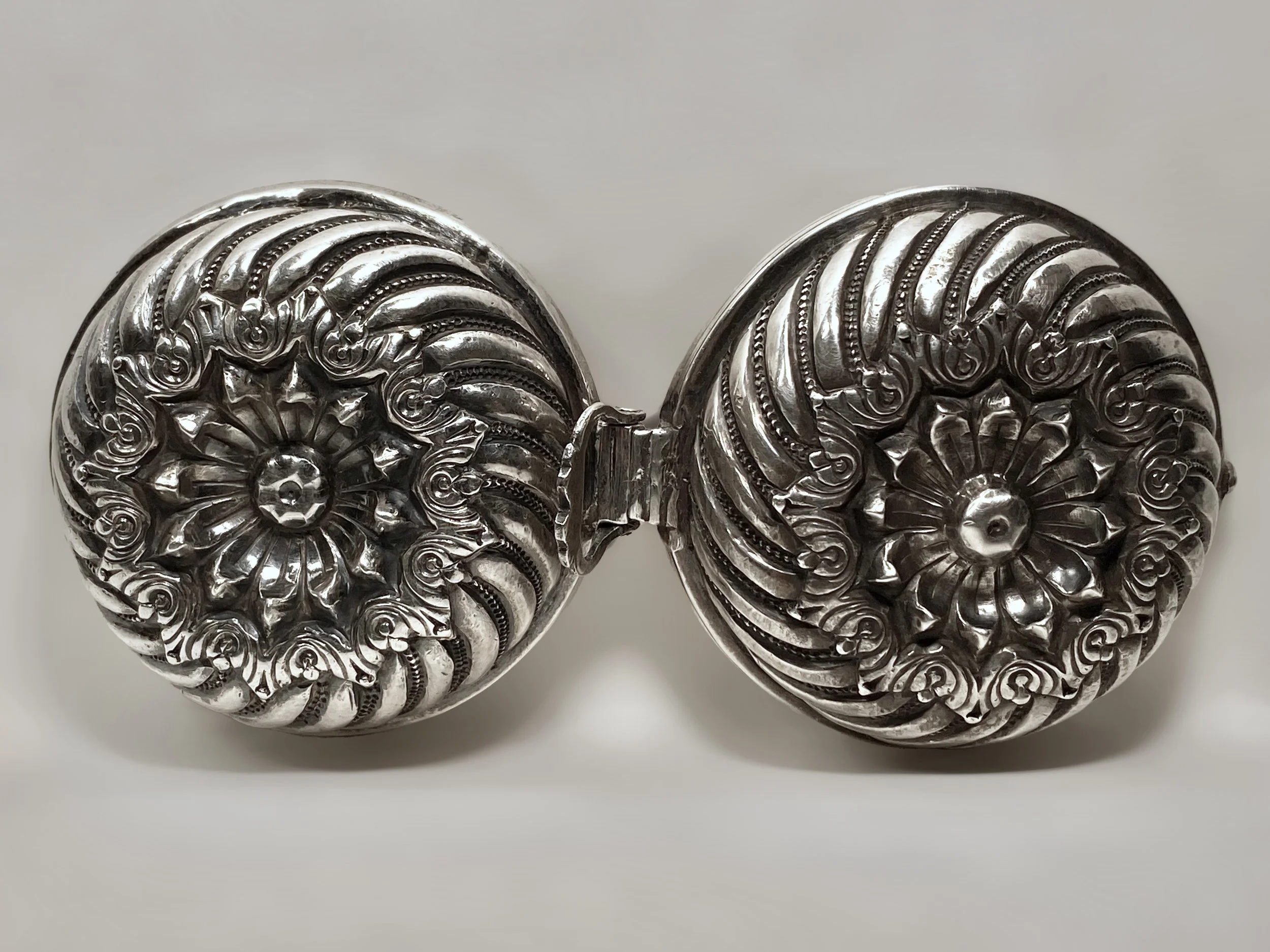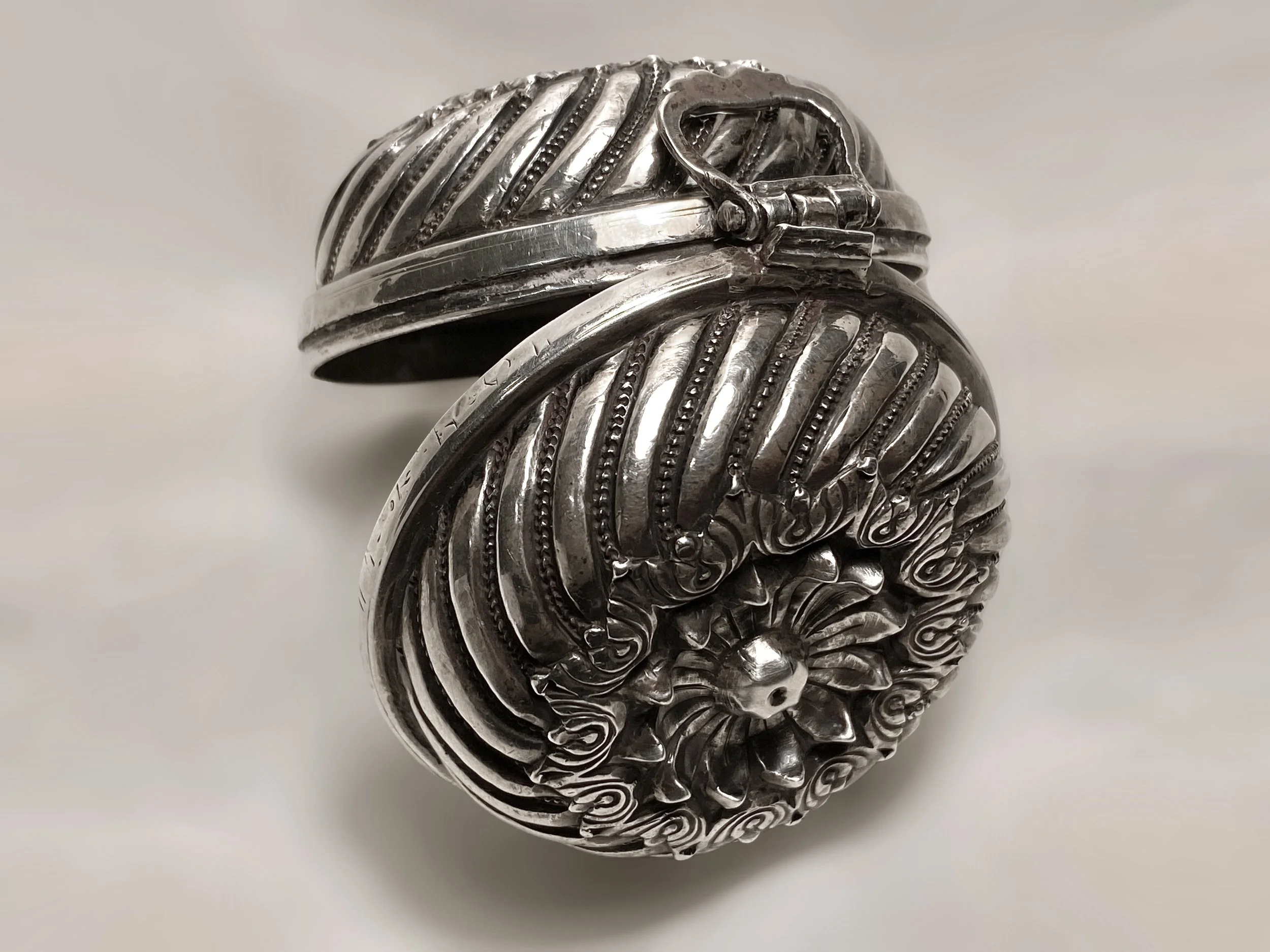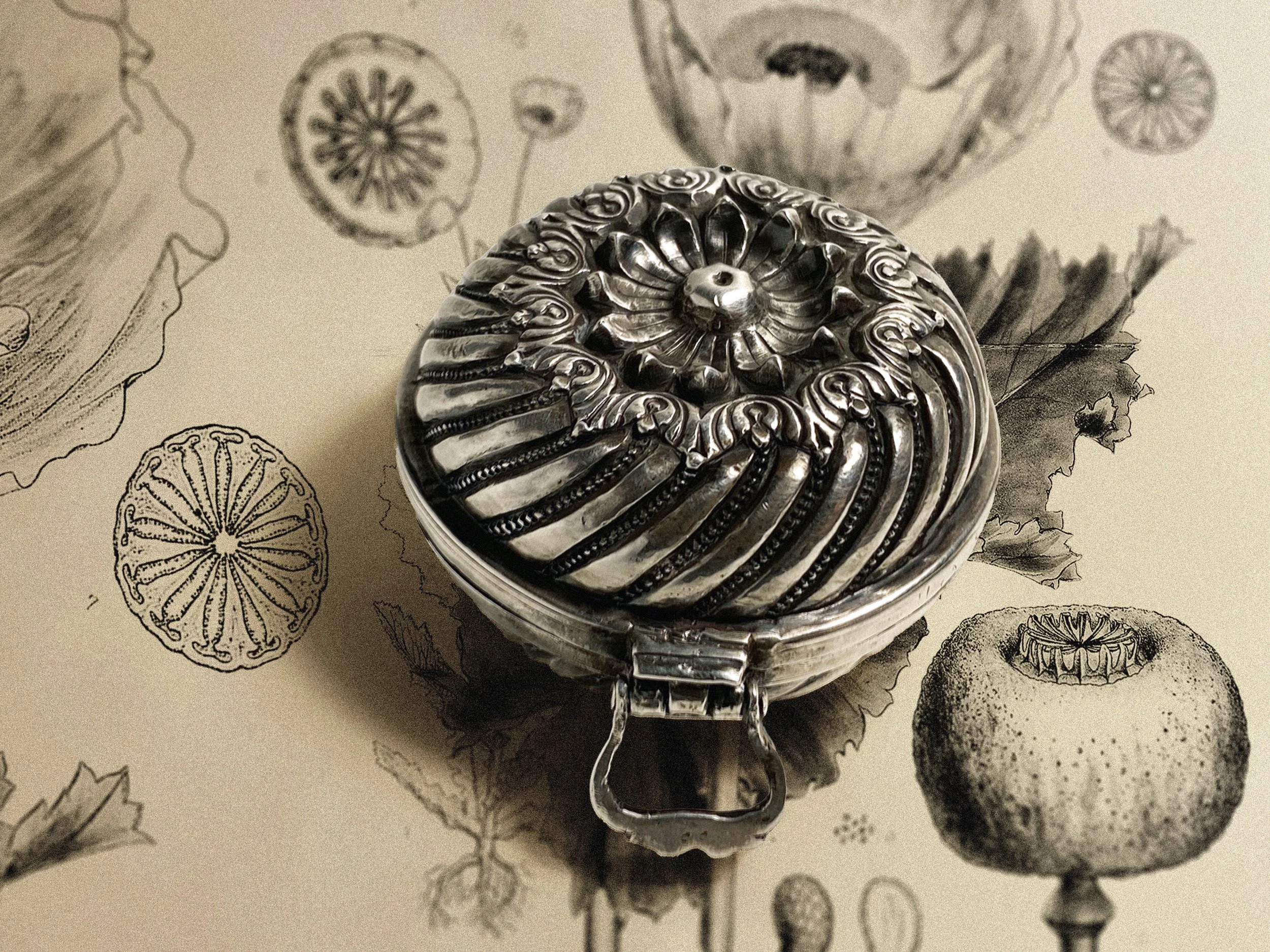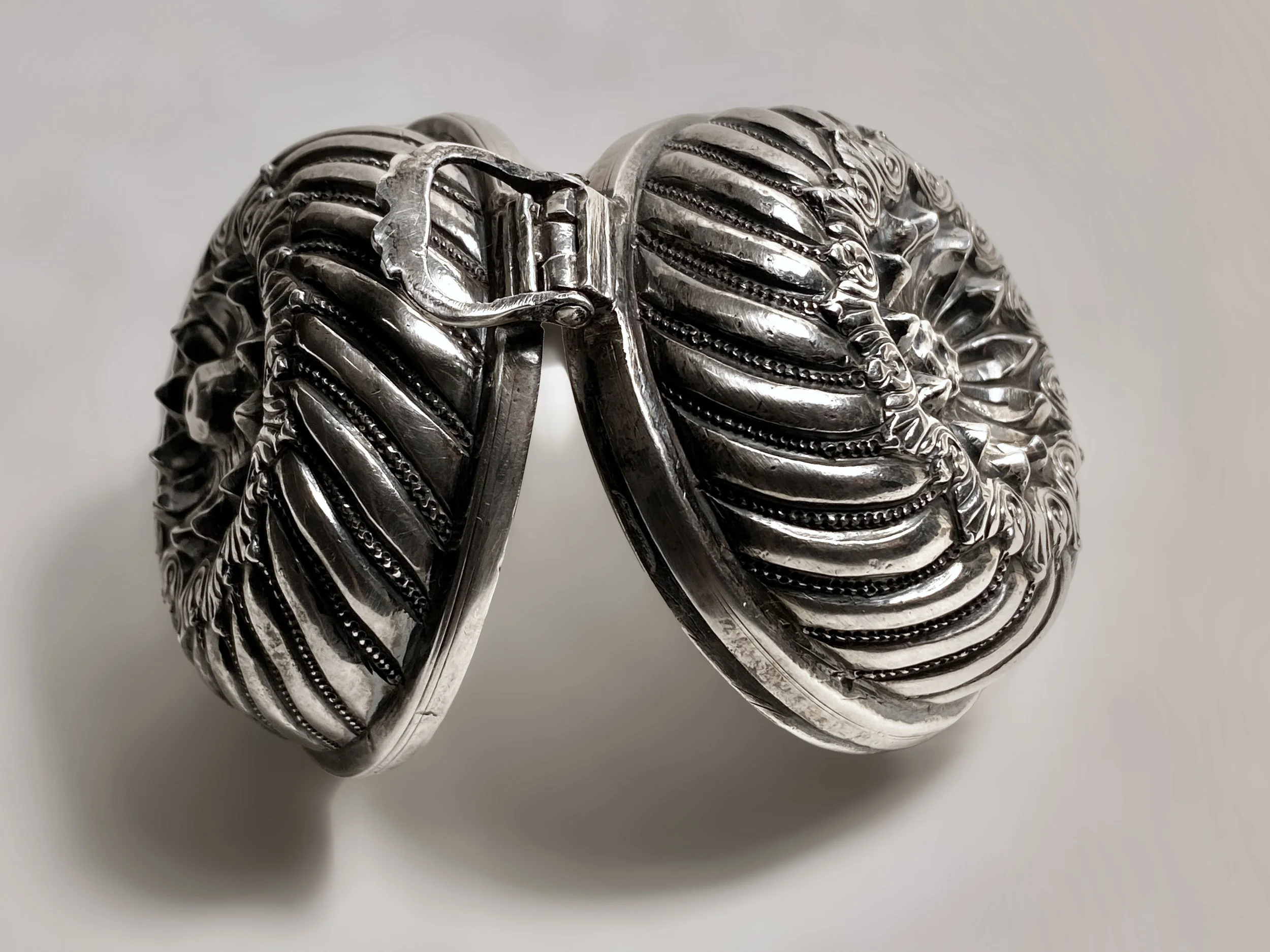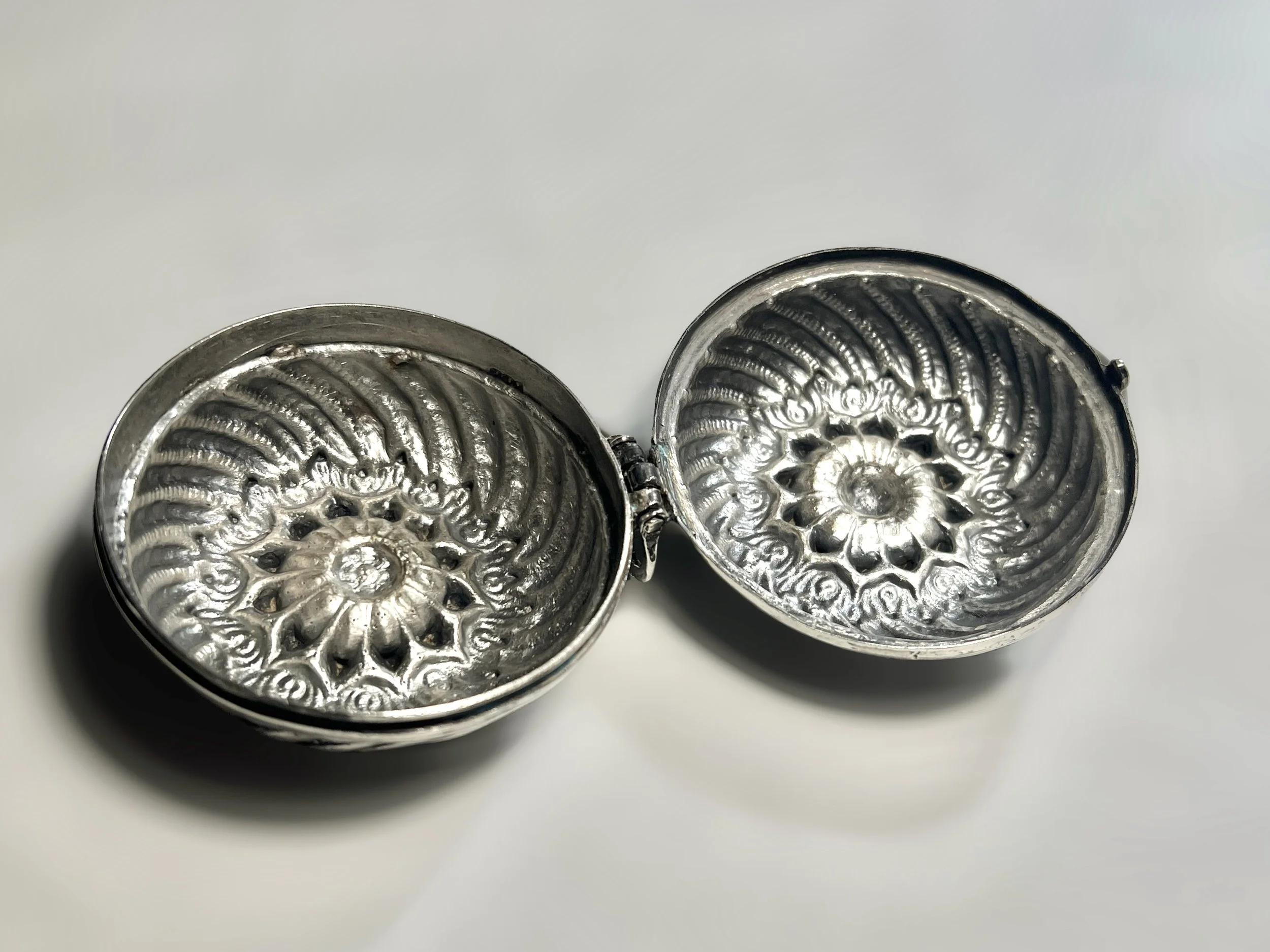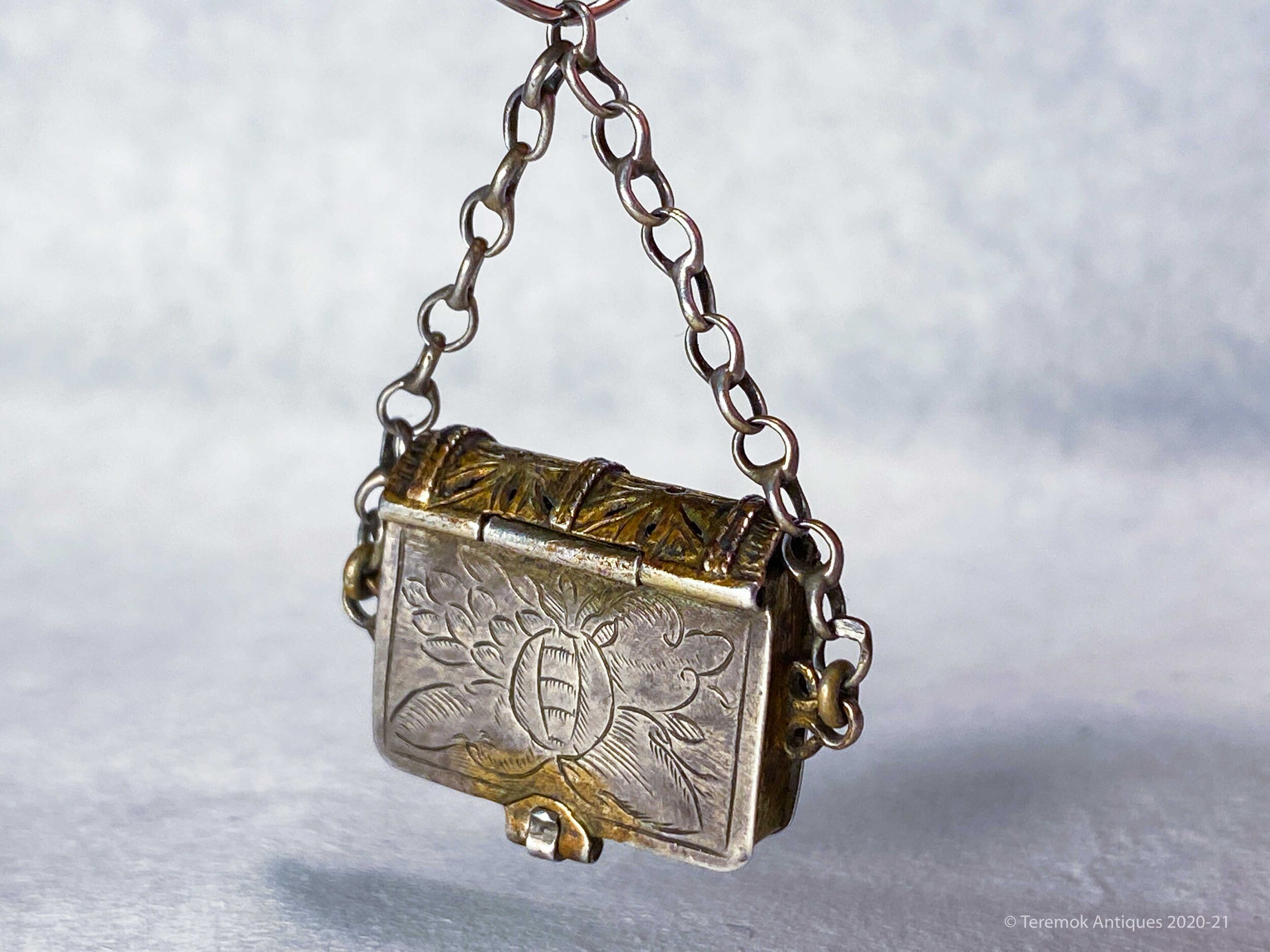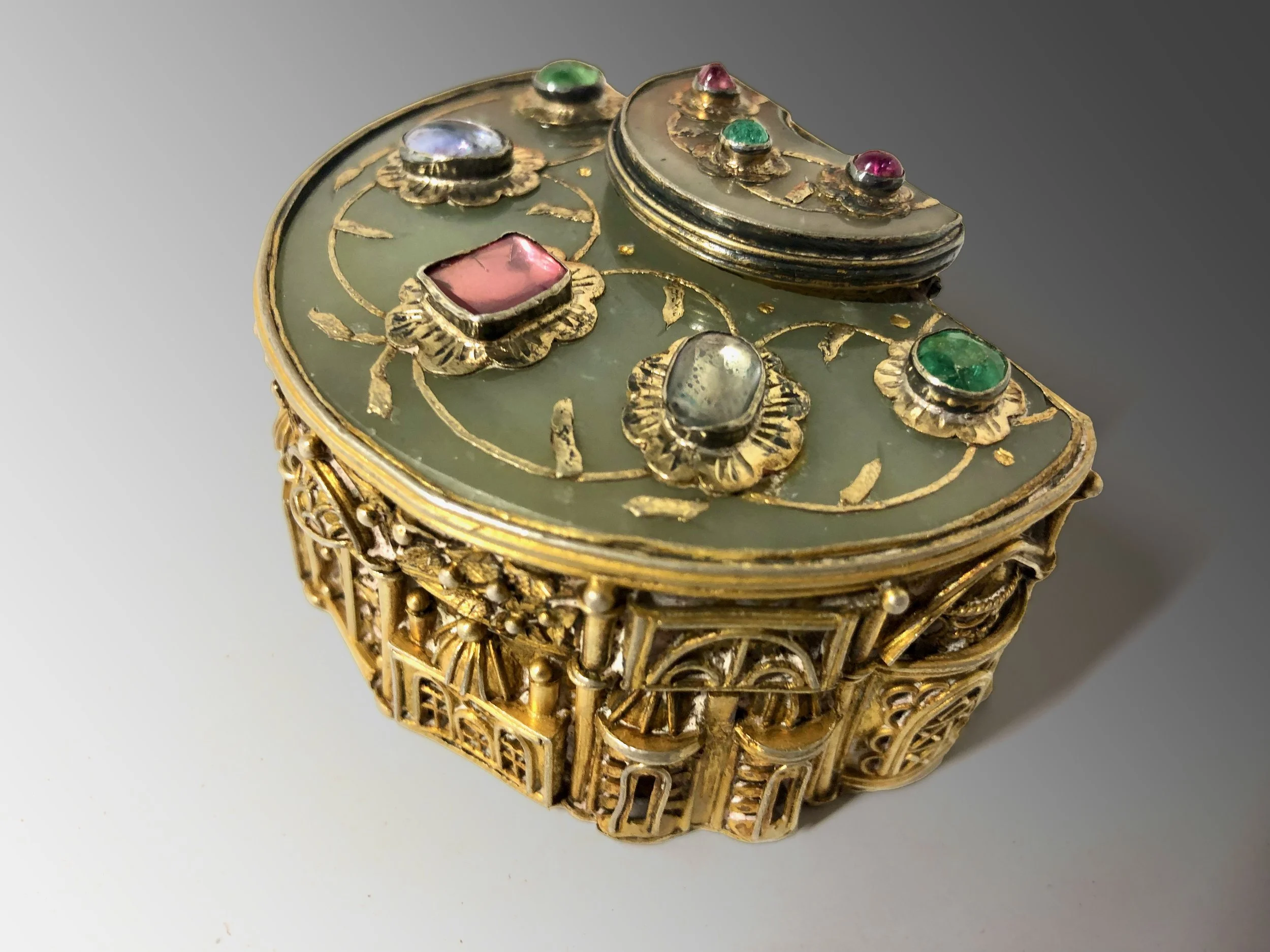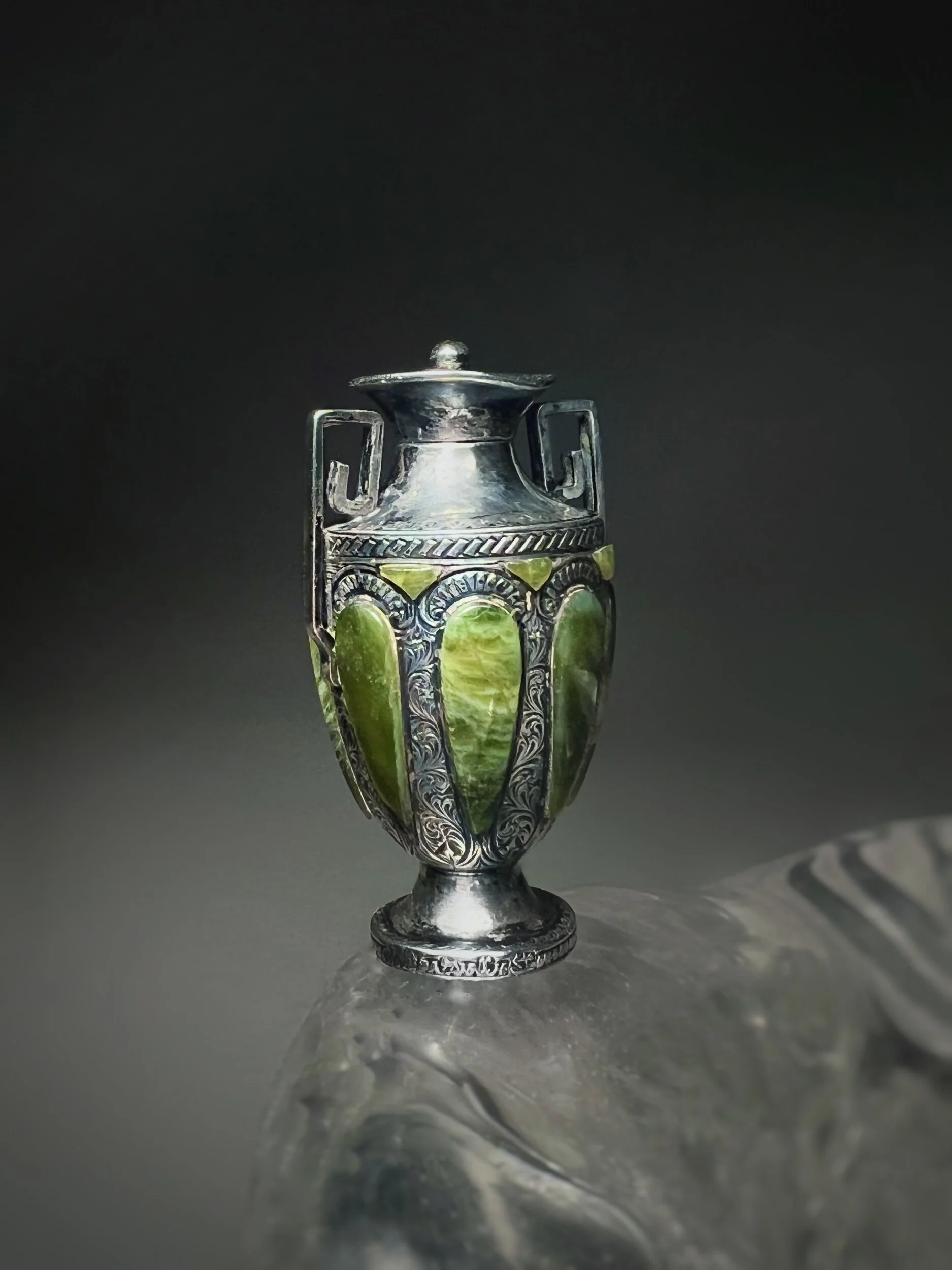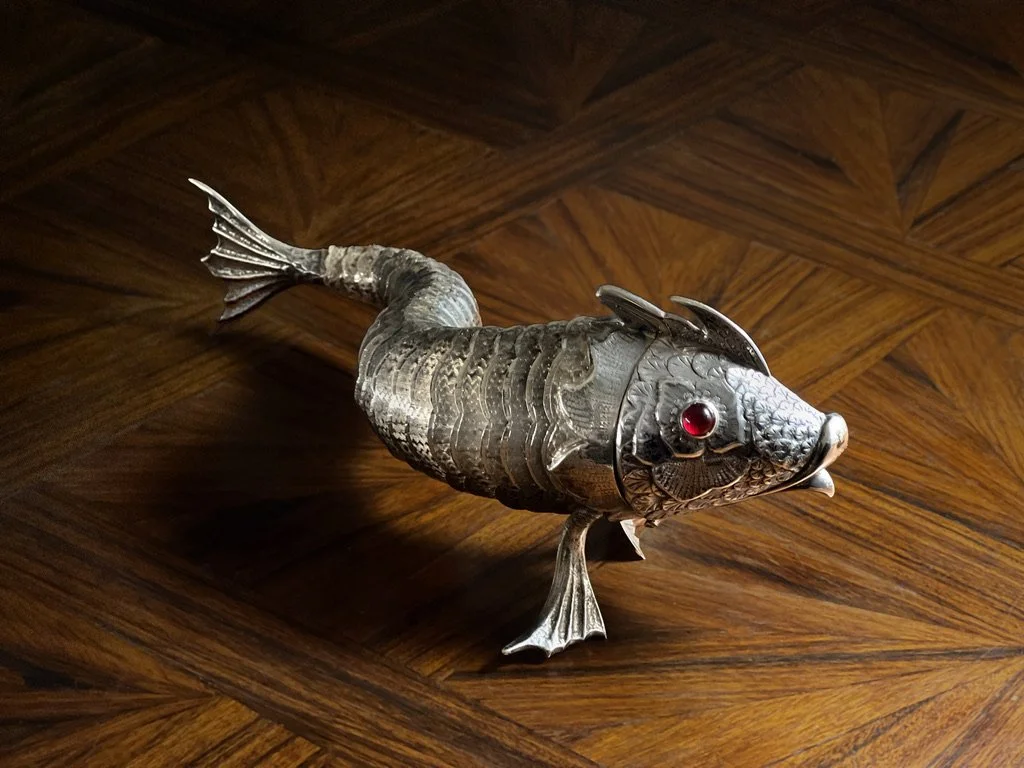Mughal Gadrooned Silver Box, India. 19th Century.
Mughal Gadrooned Silver Box, India. 19th Century.
A fine silver box featuring a hinged bail and a gadrooned body, each half intricately chased with a 'lotus petal' rosette encircled by an 'acanthus leaf' style border. This piece features elements of Mughal design, blended with motifs typical of Kutch silverwork, as well as influences from European pocket-watch case designs, akin to those seen in similar betel lime boxes from Sri Lanka and other parts of Southeast Asia.
The box may have been used to carry areca nut or slaked lime, essential components of the betel quid. Its overall form bears resemblance to paandan boxes from the Mughal period, especially with its gadrooned sides. The bulbous shape, however, might suggest a poppy pod, complete with its ringed crown. During the Mughal era, a box like this might have been paired with a chuski, a small ewer for afeem water or wine. This exquisite piece likely originates from Kutch, Gujarat. The box appears unmarked, with very faint traces of other marks or characters on the bail and rim, possibly in Gujarati or Nagari script.
3.29t (with bail) x 1.7d x 2.25w in (8.36 x 4.4 x 5.8 cm)
Condition:
No repairs, tight closure. The hinge is firmly attached, while the barrel (also known as the knuckle) and pin are a looser fit, possibly an original design feature for ease of opening the container flat.
Poppy imagery:
M0005915: Papaver somniferum (opium poppy), from Bentley and Trimen: Medicinal plants (1880). Public Domain Mark. Source: Wellcome Collection. https://wellcomecollection.org/works/xkxmujyg


